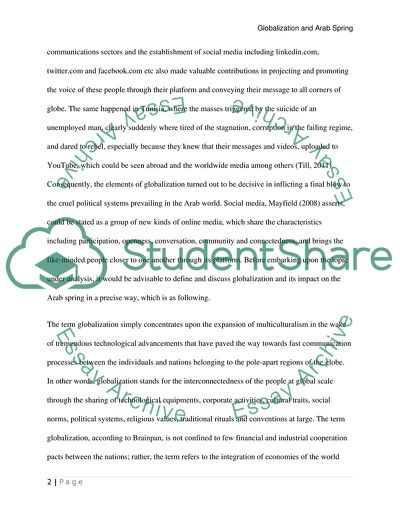Cite this document
(International relation-The impact of globalization in the Arab spring Research Paper Example | Topics and Well Written Essays - 1500 words, n.d.)
International relation-The impact of globalization in the Arab spring Research Paper Example | Topics and Well Written Essays - 1500 words. https://studentshare.org/sociology/1775918-international-relation-the-impact-of-globalization-in-the-arab-spring
International relation-The impact of globalization in the Arab spring Research Paper Example | Topics and Well Written Essays - 1500 words. https://studentshare.org/sociology/1775918-international-relation-the-impact-of-globalization-in-the-arab-spring
(International Relation-The Impact of Globalization in the Arab Spring Research Paper Example | Topics and Well Written Essays - 1500 Words)
International Relation-The Impact of Globalization in the Arab Spring Research Paper Example | Topics and Well Written Essays - 1500 Words. https://studentshare.org/sociology/1775918-international-relation-the-impact-of-globalization-in-the-arab-spring.
International Relation-The Impact of Globalization in the Arab Spring Research Paper Example | Topics and Well Written Essays - 1500 Words. https://studentshare.org/sociology/1775918-international-relation-the-impact-of-globalization-in-the-arab-spring.
“International Relation-The Impact of Globalization in the Arab Spring Research Paper Example | Topics and Well Written Essays - 1500 Words”. https://studentshare.org/sociology/1775918-international-relation-the-impact-of-globalization-in-the-arab-spring.


